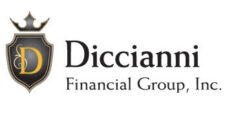How Homeownership Went from Being the American Dream to the American Nightmare Overnight
For the past century, homeownership has become synonymous with the fulfillment of the American dream. From Herbert Hoover and Theodore Roosevelt to Bill Clinton and George Bush, the leaders of our nation sought to get every American into a home, but at what cost? The recent cover article of TIME magazine questions the wisdom of a nation pushed into the belief that home ownership is the panacea for all that ails society. With the collapse of the housing market and lingering repercussions of the sub-prime rate mortgages crisis, we are left to ponder whether homeownership is truly the best, or worst, path to financial freedom.
The Bursting of a Bubble
In the United States, homeownership has become the hallmark of financial prosperity. For the better part of the last century, the government devised policies and incentives with the goal of making owning a home accessible to all. With the increase in the number of home owners came a multitude of related industries that prospered and thrived. Before the bubble burst, home improvement stores were popping up with the frequency of Starbucks. Other industries, such as building, furniture, electronics, home and gardening services and supplies, were booming as well. As the trend towards larger homes grew, so did the need for even more durable goods to fill the ever growing number of rooms. Bigger was better. More was better. The gold standard of a home was large enough to house a whole village. The amount of time, money, and utilities needed to support these homes was staggering. Even more staggering is that these homes were being occupied by middle class Americans whose salaries didn’t seem to fit the amount of goods and services needed to support them. To keep the industry going, loans were made less stringent, second mortgages were encouraged, and the emergence of no money down, interest only and 50 year mortgages were being introduced. When the housing bubble burst, the illusion that it was our right to live this way burst right along with it. But what was the alternative?
A Society of No Choices
With the rising number of underwater mortgages and foreclosures, Americans are starting to question the wisdom of owning a home. However, there seems to be very little infrastructure in place to support alternatives. Though rental property is abundant in urban settings, quality choices can be limited or non-existent in some suburban communities unaccustomed to the increased interest in renting. There are even places in the country where zoning doesn’t allow for rental property. Overnight, a credible case has been built to support the decision to rent rather than buy. Renting in our present economic climate enables the mobility needed to go to where the jobs are and not be tethered to a place that is struggling with unemployment. Also, the return to placing 20 percent down in order to qualify and get preferred mortgage rates has necessitated the growing need for rental property. Finally, unemployment or underemployment is forcing many potential buyers to sit on the sidelines longer than has been the case in past years. For others who did own homes and got burned by plummeting home values or upside down mortgages, buying again may be the last thing they want to do. But is this the best choice?
The Financial Wisdom of Home Ownership
Is home ownership beneficial to a person’s overall financial health? This is a complicated question. If you buy a home with the intention of flipping it a few years later, you may be in risky territory. First, as the past few years have shown, value doesn’t always rise rapidly. Second, interest rates won’t always be low. The higher the interest rate, the higher your payment will be. And finally, each time you flip a house you begin the thirty year process again. Seeing interest and other fees are upfront, you keep resetting a cycle that keeps you 30 years away from having a home paid off. To flip at the age of 45 means that you would be 75 when signing your final mortgage check. This could mean having to either delay retirement until your mortgage is paid off, or using your savings to pay off the balance. Whittling down your nest egg so soon after retirement not only changes the amount of time your money will last, but gives you less money working for you. It is also important to point out that the very real possibility of the dissolution of the mortgage interest tax deduction looms on the horizon. If this tax deduction disappears, there is no longer the justification for higher earners to borrow larger amounts to bring down their taxable income. Homes will be homes, not tax deductions.
Can your Home Make You Rich?
Owning a home can be one of the smartest financial decisions you will ever make. For those capable of looking at the big picture, home ownership can be one of the best forms of forced savings and profitability. The key is to choose wisely. Choosing a location not for just today, but for the long haul is the first step. Even if the home appears tight when the kids are teenagers, trust that it will be roomy again in a blink of an eye. The next step is settling into your final home at an age when it will be paid off before retirement.
Keeping your mortgage payments comfortable frees up money to invest in other places, as well as gives you liquidity to live and enjoy life without having to rely on credit. Also, saying no to the lure of home equities is a powerful tool to keep your home accruing income. Again, if the mortgage interest deduction goes away, the benefit of a home equity goes away as well. Finally, a home that was purchased 30 years ago, and does not have a second mortgage attached to it, is not underwater. Quite the opposite! Even if your home value took a hit from its peak two years ago, you are probably still looking at a hefty sum of profitability.
The question of whether homeownership is the best or worst financial decision depends on how you approach it. Staying within your means, not remortgaging too much of your equity, and refraining from starting over the thirty year clock too many times are good first steps. We are all going to grow old one day, and we are all hoping to retire. Whether home ownership is the American dream or the American nightmare hinges on the choices we make while we are still young enough to affect its outcome.
Contact us when you need support with financial choices surrounding major events in your life.

